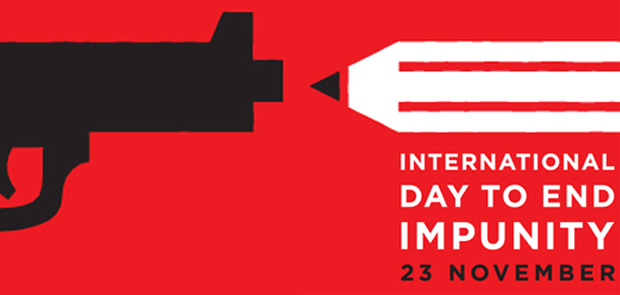UN to vote on official day to end impunity

The UN has been urged to officially recognise the International Day to End Impunity for Crimes against Journalists as the Third Committee, dedicated to dealing with human rights issues, will today be asked to vote on a draft resolution.
The resolution, backed by at least 48 countries, is based on the UN Plan of Action on the Safety of Journalists and the Issue of Impunity, approved on 12 April 2012, which saw United Nations agencies work with member states towards a free and safe working environment for journalists. If successful, the UN Secretary General will present a report on the implementation of the resolution at the next General Assembly 2014, with 2 November officially being recognised as the official UN International Day to End Impunity.
Co-sponsored by 80 organisations and backed by countries including the United States — and even Azerbaijan and Colombia — the draft resolution calls for the acknowledged ‘condemnation of all attacks and violence against journalists and media workers, such as torture, extrajudicial killings, enforced disappearances and arbitrary detention, as well as intimidation and harassment in both conflict and non-conflict situations’.
Index on Censorship as a founding member of IFEX has been supporting the International Day to End Impunity since its launch in 2010 which has seen the 23 November recognised as the day for campaign. Annie Game, IFEX Executive Director, stated: “This is a positive move forward because IFEX members acknowledged that making the International Day to End Impunity an official UN day can help to raise the global profile of the issue. Every year, a growing number of IFEX members and concerned individuals take part in this campaign that strikes at the very roots of the problem. Having the UN acknowledge the importance of this issue will help us broaden our reach and turn up the volume on the call to end impunity.”
The draft resolution also:
• acknowledges ‘the specific risks faced by women journalists in the exercise of their work, and underlining, in this context, the importance of taking a gender-sensitive approach when considering measures to address the safety of journalists’;
• the acknowledgement that ‘journalism is continuously evolving to include inputs from media institutions, private individuals and a range of organisations that seek, receive and impart information and ideas of all kinds, online as well as offline, in the exercise of freedom of opinion and expression, in accordance with article 19 of the International Covenant on Civil and Political Rights’;
• and ‘urges Member States to do their utmost to prevent violence against journalists and media workers, to ensure accountability through the conduct of impartial, speedy and effective investigations into all alleged violence against journalists and media workers falling within their jurisdiction, and to bring the perpetrators of such crimes to justice and to ensure that victims that access to appropriate remedies’.
The full draft resolution can be seen here.
This article was originally published on 26 Nov 2013 at indexcensorship.org
